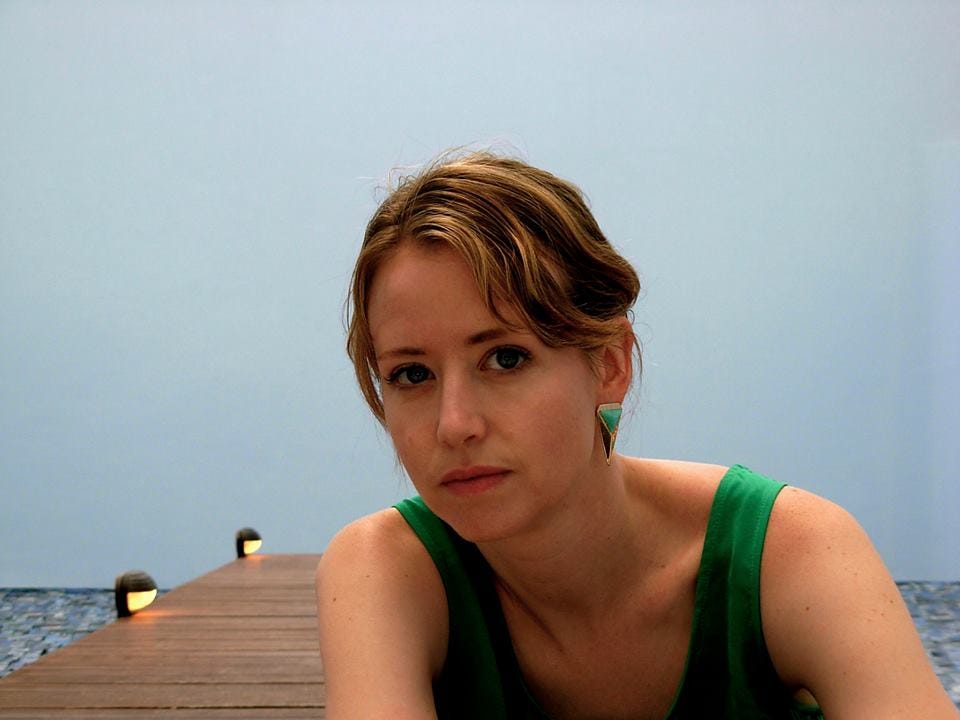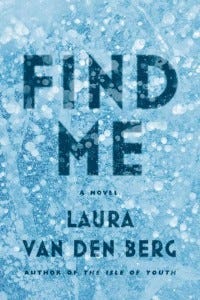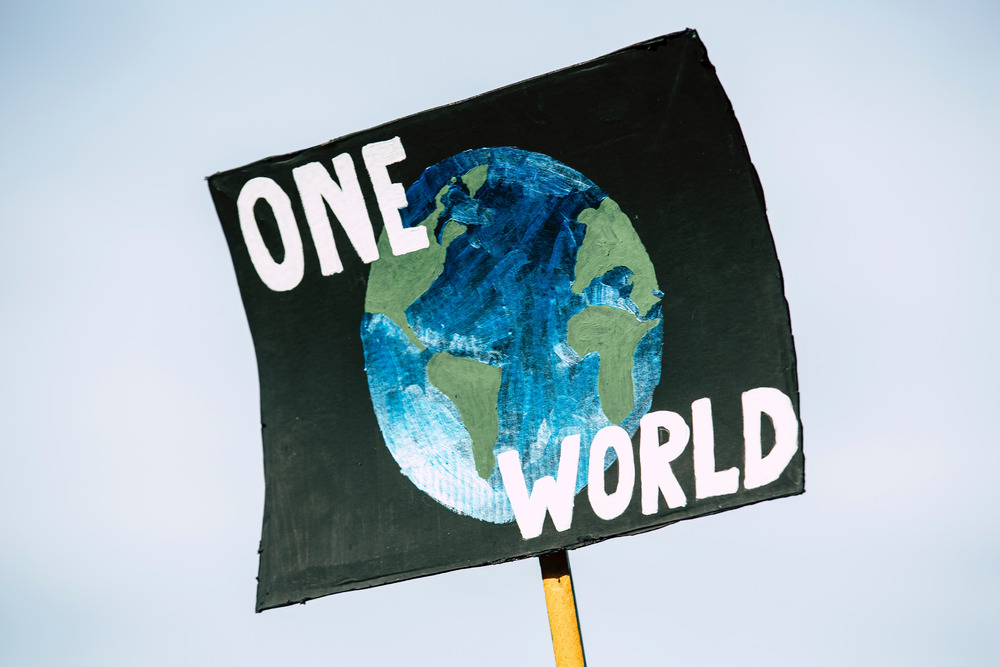interviews
INTERVIEW: Laura van den Berg, author of Find Me

by Porochista Khakpour


I had to go on Facebook and hit “See Friendship” to figure out when I first became friends with my favorite author-friend on earth, Laura van den Berg — it appears to be October 2009. We’ve had many friends in common for years, and I still remember her first book coming out around then (a couple years after my debut novel), and finding her rather fascinating from a distance. She was of course incredibly beautiful and seemed internet-addicted like me, plus a bit weird, possibly even as goofy as me, deadly smart. All of this was true, luckily for me. We corresponded for some time about boring publishing things and then I think we first met when she came to a PEN/Faulkner reading of mine in DC, when she was a fellow at the Gilman School in Baltimore. She gave me advice when I was feeling distraught over not finding a publisher for my second novel, then I hooked her up with a class I could not teach at Johns Hopkins, then we met at AWPs often. And she and Elliott Holt and I even had a birthday weekend in Baltimore where somehow we recreated the famous Lindsey-Britney-Paris photo with incredible accuracy. Every time she’d come back to NYC we’d have a nice dinner — at The Smile — and dream of spending more time together. She was my main date at my last birthday party, and when my book came out, Laura was my go-to: she was in conversation with me for my second novel launch party and then we did a reading together at Brookline Booksmith. She came to my Fordham class, my Bruce High Quality Foundation class, and soon Bard and Sarah Lawrence — and I will teach her forever, because I’ve found her work inspires students like no one else. Did I mention she is a genius? She is. She applied for the Bard Fiction Prize, and got it, just as I got hired as a Writer in Residence — all a happy accident, truly — so now a few nights a week we have slumber parties at the faculty house she has there. We both have dogs in our life, Oscar the lab and Cosmo the poodle, who are young men and best friends. Baltimore, DC, Boston, New York City, Annandale, we’ve seen some places — but our true dream is visiting each others’ homes in Los Angeles and Florida. We bond over being mall girls, with kind of crappy tastes, outsiders to all sorts of fancy East Coast pedigreed crud. I could live on hot dogs, Laura seems obsessed with the Filet O’ Fish. There are some things I would write here but I can’t, so here is a placeholder (it has to do with what a special person she has been for me, especially in some very horrible times). She is also, like me, a bit of a former goth (you can get a touch of this with her aversion to smiling in photos). She was also a bad student! We have very similar taste in books — we have an endless appetite for weird stuff. I also think we both look like we fit in more than we do, but that is a superpower we should not discuss too much.
Also, our mutual friend Karen Russell has created a girl-gang for us called Team Sorceress — it’s just us, Kelly Link, Aimee Bender, and one dead author Leonora Carrington. We’ve never all hung out as a group yet, but Sorceresses are not so basic and know there is always time (we have a dead member after all).
So now, just as her debut novel and third book Find Me comes out, I’m going to ask her a lot of stuff I know the answer to and then maybe some other stuff.
Porochista Khakpour: When you first imagined being a writer was it the short story or the novel you thought you’d be doing?
Laura van den Berg: Short stories, sort of by default — that was the first form of literature I fell in love with and so it was the first form I aspired to try on my own. But when I began to fall in love with novels, the desire to write one myself, in a kind of dreamy, far off sort of way, was definitely sparked.
PK: It takes me sometimes five-to-ten times as long to write the first draft of a short story, so the whole thing fascinates me. What was the process like on this and how was it different? Is this actually your first novel? So few writers are good at both, but you are clearly one. Would you go back to stories or a novel next?
LvdB: I tried to approach a novel draft in the same way I would a story draft: write the whole thing straight through, in a big frenzy. I finished a first draft in six months, but then worked on the book on-and-off for six years. Having a 300 page disaster on your hands was very different than a 25 page disaster, turns out. Also, life just got in the way at times, you know? Which happens with stories too, of course, but when I’m really into a story I’m working on, I can work on it a little bit here and there and those pieces actually have a chance of adding up to something worthwhile. But novels want your life more than stories do, or at least that’s how it feels for me, and so much of the essential work was done at residences, when it could have my life for a set period of time, or during stretches at home where I could lock myself away and forget the world.
As for what’s next, I think both! I’m working on a new novel project and also new stories. When I was only working on the novel, it was very hard to not be finishing anything for long stretches, that constant state of suspension and unfinishedness, which was why I started writing stories along the way and ended up with The Isle of Youth. That story-novel rhythm seems to be a good one for me. I hate the sensation of being overly confined, so I like to have multiple projects on the table, lest I feel too chained to one thing.
PK: I thought Find Me was bought on proposal. Is that true? What was it like working that way? You had just wrapped the second collection tour!
LvdB: Oh my lord it was most definitely not bought on proposal. Nothing against proposals, but it would be hard for me to work that way. When my agent sent out The Isle of Youth, she also sent out Book One of Find Me — with the hope that both projects would speak to someone and luckily that happened. I had been working on the novel for a long time by then, but still Isle was the book that got finished first. When my editor bought the book, she’d read the first 150 pages and had a very clear sense of the voice and overall project. At that point, I had finished a full draft, but knew the second part wasn’t right, so I ended up chucking it and rewriting at a residency not long before Isle came out. It was a good situation, in that the support gave me the confidence I needed to take certain leaps and at the same time my editor knew, and supported, the nature of the project, so I wasn’t too worried about turning in the book and having someone say, “What?! Where is the historical romance set in a underwater city I thought I was getting?”
I really can’t imagine doing fiction solely on proposal, unless the terms were extremely vague. Like: you will write “something fiction-y” in the next “5–10 years.”
PK: Okay, I’m going to go there: dystopian novels! Everyone is talking about them, especially you and Edan Lepucki and Emily St John Mandel (and sometimes I’m in this group too). What do you think of this? And I joked recently to Karen Russell at our Lannan conversation last month, life feels so dystopian right now that we might need utopian novels (or post-dystopian?!) But what do you think of the larger conversation this work is part of, in this sense. Do you love or hate that dystopian tag? Is part of the novelty here that young women are doing it?
LvdB: I don’t mind the “dystopian” tag at all. It seems accurate to me, but at the same time I do think it’s important to acknowledge that “dystopian” is a very broad term, like “realism.” Which is to say Station Eleven and California and Fiona Maazel’s Last Last Chance and Ben Marcus’s The Flame Alphabet and Shane Jones’ Crystal Eaters and McCarthy’s The Road and Justin Cronin’s The Passage could all be classified as “dystopian” but offer radically different reading experiences and views of the world.
Certainly there is a big wave of dystopian literature right now, in a way that feels concentrated, but is it any wonder, when we think about where we are in terms of our current moment? At the same time, the tradition of dystopian literature runs deep, and I imagine the recurring desire to engage with a dystopian landscape rises from every generation having moments where the world feels insane and unlivable, and feeling moved to respond to that.
PK: Tell me about where the character of Joy came from. She is so unforgettable and yet because I know you I feel you in her in so many ways.
LvdB: The book was always narrated by Joy, it was never anyone else’s story, yet it took me a long time to figure out what was crackling beneath Joy’s immediate story, to figure out what’s driving her at a core level. Of course, these are important things to know about any character, but they take on a particular kind of weight and importance when you’re working in the first person and that “I” is speaking to you directly — Why is this “I” speaking now? What’s behind that desire to talk? What kind of story are they telling? Ultimately Joy’s background and damage is very different than my own history — I had a pretty typical suburban childhood in many ways — but there are definitely bits of me in there too. A lot of the landscape details come from life, for example, and also it’s not at all hard for me to imagine the worst-case scenario. My imagination, my sight, is disaster oriented.
PK: The lyrical, the fragment, the interrogative, there is so much poetry in this book in a sense. It always feels so appropriate. I think of your tactic as a writer as being a “great inhabitor” — -you take stories like an actor and approach them all uniquely, as in: what does this mission require of me, etc? The story always calls the shots, overshadows any writer ego, and in that way I also feel that you are always conscious of ambiance in all your work. Can you talk about that?
LvdB: Ambiance is so important to me in fiction. Some writers reinvent the ambiance from book to book and for others, there is something of a signature tone. For me, I think the ambiance is somewhat consistent from book to book. My voice is as it is, at least for now, but because of that I’m very conscious of how I can stretch and get that voice and worldview to evolve, to do new things, to inhabit more fully and in different ways.
PK: There is both the epic and the general and macro here mixed in with the everyday and specific and micro — totally, ambiantly, thematically etc. We get the extraordinary with the banal. I feel these juxtapositions in your stories too. I think I do this a lot as well. The friction between two opposing elements always for me is what’s compelling. Is this a conscious move for you?
LvdB: Not initially, but then during those long cycles of re-seeing and re-writing, I certainly become conscious of emphasizing certain contrasts. There are a lot of mirrors and inversions in the book. The two parts contrast each other in some ways — inside vs. outside; stasis vs. movement; cold vs. moving toward warm; landlocked vs. coast — but they are mirrors as well. I see the Mansion in Book Two, for example, as echoing the Hospital from Part One. So with the architecture I was, at a certain stage in the process, conscious of drawing out those parallels and dissonances.
PK: Which brings me to setting! We have Florida, Massachusetts, Kansas, and more. I know much of this answer but can you talk about he function of setting in this?
LvdB: Honestly I think the various settings are partly a product of having moved so much while working on the book: North Carolina, Pennsylvania, Baltimore, Massachusetts, Maine. Often I was in some kind of commuting situation, so on the road a lot, and I spent chunks of time in Utah, Key West, and New York. I spent so many hours looking through windows at different corners of the American landscape, and the places that made the strongest mark found a place in the world of the book.
PK: Karen [Russell] and I spoke a lot about moving around for jobs, all over the country, the pros and cons of this gypsy/hobo/wanderer life we get if we are lucky! What do you think?
LvdB: In a lot of ways, I think it’s been really good for me. I lived in Florida, where I’m from, for twenty-two years, unbroken. I went to college in my hometown. So to see so much of the country has been a tremendous gift and has made my work better. I have no doubt about that. That said, I have been super nomadic for a long time now and I’m approaching my limit. I don’t know that it’s starting to become bad for my writing. I’m just tired of moving. I’m living at Bard College in the Hudson Valley at the moment and I love it here and I have no idea where I’ll be after. Maybe it’s old lady-itis settling in, but a big part of me wants desperately to settle somewhere and never ever move again.
PK: Then there is the issue of the real vs. the surreal. I feel like Florida and California are crazy places so in a sense, we are being more realists than people think when we portray them perhaps. But also in your book, memory loss and the idea of the forgetting — doesn’t this seem something very close to home? I think of how social media works like drugs, they say, what it does to the brain. . .the other day at our Bard house, we both couldn’t remember a thing for a few minutes. I only ask because I think we are both very much online a lot.
LvdB: I see the novel as being most immediately concerned with how memory works at an individual level, but certainly I was thinking about the collective forgetting we do culturally — we see this at the level of town/city, state, country, world. The internet parallel is an interesting one, the possibility that it facilitates that kind of collective forgetting. I do think the internet has made life feel more ephemeral. There will be a flurry around a news story or some piece of information, but how much is being internalized in a meaningful way? Remembered in a meaningful way?
PK: The other night we talked about this dream of mine, an essay I never wrote called “The Extrovert’s Dilemma,” but that I think we should do together since I think we are the most out-of-the-closet extroverts in letters. We both think introversion is a bit overrated, no? Still waters run deep — but do they really? Always?! Anyway, tell me about being an extrovert author, especially in this culture of introvert glory.
LvdB: It does seem like there have been a lot of “woe is introvert” pieces of late — they feel all the feelings! — that also manages to misread the extrovert personality. Being an extrovert can feel a little alien as a writer. I don’t fetishize solitude. I like being in the world. I like being around people (assuming the people in question are cool and not horrible; if they are horrible, then forget it). The solitude it takes for me to write a book is about all the solitude I can stand. Most writers I know like to be in the Quiet Car on Amtrak. I hate the quiet car. I am Café Car all the way.
PK: Obviously I adore Paul Yoon, your husband, who is Quiet Car for sure. (Readers, in the brief period that Paul was on Facebook — a moment when Paul actually thought he could make the thing elegant — it was my daily delight to deface his captions and comments sections with all-caps profanities.) You guys balance each other so beautifully — and maybe tied with my friends Danzy Senna and Percival Everett, you are my favorite lit couple! Let me be People Magazine for a second: tell me a bit about the functional two-writer household (I only have known the dysfunctional ones!)
LvdB: I can see all the obvious pitfalls of living with another writer, but I’ve always loved not having to explain myself in certain ways (like the need to go to residences, for instance). If you are engaged in the same kind of life, in your different ways, there is a kind of unspoken language and closeness that I really cherish.
PK: A funny thing about us living together is that our habits are so compatible. For one thing our food-compatibility! We are EATERZ, for sure. Can you talk to me about food and writing and your perfect writing day meal?
LvdB: Well, I have major low blood sugar, so when I get really hungry I basically turn into the Incredible Hulk and act like a lunatic until I get food. I am not the most pleasant EATERZ when I’m Hulk Hungry, so my ideal writing day meal would involve lots of little meals to prevent Hulk Hungry from setting in. I have been really into these beet and turmeric drinks lately (I know, I’m sorry, what can you do), so I’d start with one of those. Later I would have a tomato and kale salad with a enormous portions of soppressata and mozzarella. Basically soppressata and mozzarella with springs of kale. And then an afternoon snack of apples and almond butter. And then a grapefruit. I love grapefruit, even if I remain a little mystified by how to properly eat one. And then some tater tots, which is in my view a perfect food. And then homemade tofu with dashi and sheets of seaweed. And then a Filet-O-Fish, my great weakness. Please note that all of this food is appearing in my kitchen by magic.
PK: I feel a bit betrayed by the chicness of your food there, just as I did when you made me such a beautiful breakfast that one day (I whined, I thought we were both supposed to be wonky cooks!) Well, we are both crazy dog ladies — now talk to me about having a dog now as a writer.
LvdB: Oh, I love having a dog. I grew up with lots of pets, so it feels natural to have a dog in my life now and I think dogs can be great for writers. For one thing, writers are usually needy and in need of validation and let’s be honest, no one is going to love you like your dog. I mean you could be the worst person in the world and your dog will still be epically excited to see you. To be clear I aspire to not be the worst person in the world, in hopes of being loved by both dog and human, but you get my point.
Emotional fulfillment aside, dogs are great for writers because they get them in a routine and get them out in the world. My dog is only seven months and he is very attached to going on walks twice a day. And so that’s built into my routine and it’s a useful way to keep track of time and to organize the days and it guarantees I’ll always get outside for a bit. I hardly even take my phone with me on these walks. I watch my dog play in the snow. I look at the sky. It’s tremendous.
PK: Finally, tell me about your devotion to Team Sorceress.
LvdB: It’s the only team I’ve ever been on, and I think we should get T-shirts.









